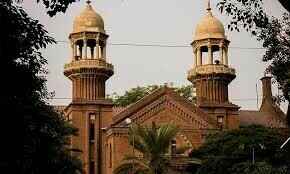The contentious Punjab Defamation Law, which received approval over the weekend from the acting governor of Punjab, is the subject of an application that the Lahore High Court (LHC) has scheduled for hearing.
On May 20, the Sunni Ittehad Council, which is sponsored by the PTI, and journalists monitoring parliamentary proceedings protested against the Defamation Bill, 2024, which the Punjab Assembly passed without accepting any of the opposition’s amendments.
However, the law soon found itself in the LHC after two journalists filed a combined petition contesting its legitimacy, a copy of which is accessible with Dawn.com. The measure has previously received a lot of criticism from journalists, civil society organizations, and the opposition.
The petitioner’s attorney asked the LHC to halt the defamation bill’s “operation.” On Monday, though, the registrar’s office completed reviewing the petition and rejected the application.
A copy of the gazette notification was not attached to the petition when it was first filed. Advocate Nadeem Sarwar, the petitioners’ attorney, stated that the registrar’s office made its decision on Monday after receiving that submission.
After the registrar’s objections were addressed, the petition was resubmitted, and LHC Justice Muhammad Amjad Rafiq scheduled a hearing for Tuesday, or tomorrow, at 9 a.m.
Journalists Jaffar Ahmad Yar and Riaz Ahmad Raja filed the petition, claiming that the Punjab defamation bill was unconstitutional in sections 2m and 2o (definitions of journalists and newspapers), 3 (defamation actionable), 4 (defenses), 8 (institution of tribunal), 11 (procedure of tribunal), 12 (no comment on pending proceedings), 13 (leave to defend), 15 (preliminary decree), 21 (consequences of proof of defamation), and 23 (Qanun-i-Shahadat not to apply).
Article 2-A (The Objectives Resolution), Article 9 (Security of person), Article 10-A (Right to a fair trial), Article 14 (Inviolability of man’s dignity), Article 18 (Freedom of trade, business, or profession), Article 19 (Freedom of speech), Article 19-A (Right to information), Article 25 (Equality of citizens), and Article 175 (Establishment and Jurisdiction of Courts) of the Constitution were specifically cited in the petition.
The petition stated that the Punjab Defamation Bill, 2024 was just enacted by the Punjab Assembly, “despite significant concerns from the journalist fraternity, human rights organizations, and opposition legislators,” and that it may be characterized as a “draconian law” and a “authoritarian move.”
PPP separates from the bill
During a news conference in Karachi today, Sindh Information Minister Sharjeel Memon insisted that the PPP had nothing to do with the Punjab Defamation Law when questioned about the party’s position.
“The Punjabi law that was passed did not include the PPP. It was not signed by the PPP’s governor of Punjab, he continued.
The Minister of Information for Sindh once again stated that the PPP stayed out of “things like this.”
He remarked, “Imran Khan signed Peca into law when his government was in power in an attempt to control journalists.”
“The PPP is among the most disadvantaged groups overall,” he continued. “A significant media campaign was launched in 2008, when we were in government, to damage our reputation. We still support the media now despite that.








